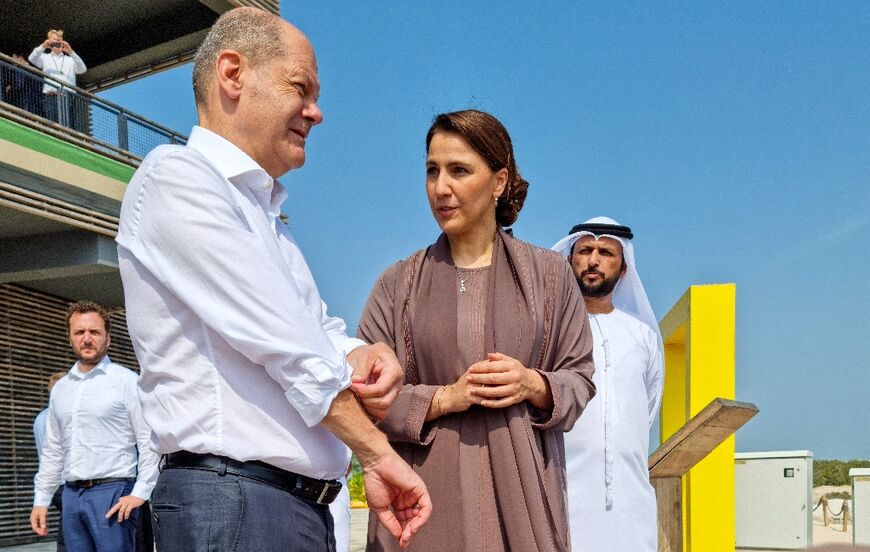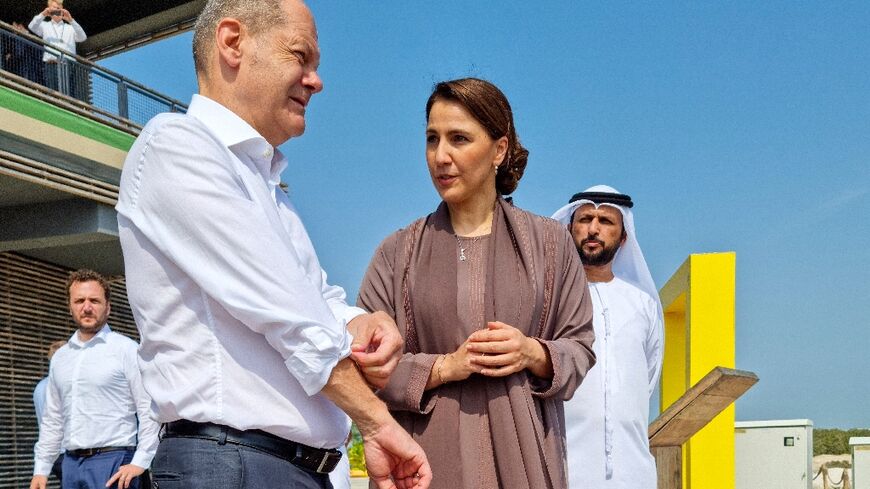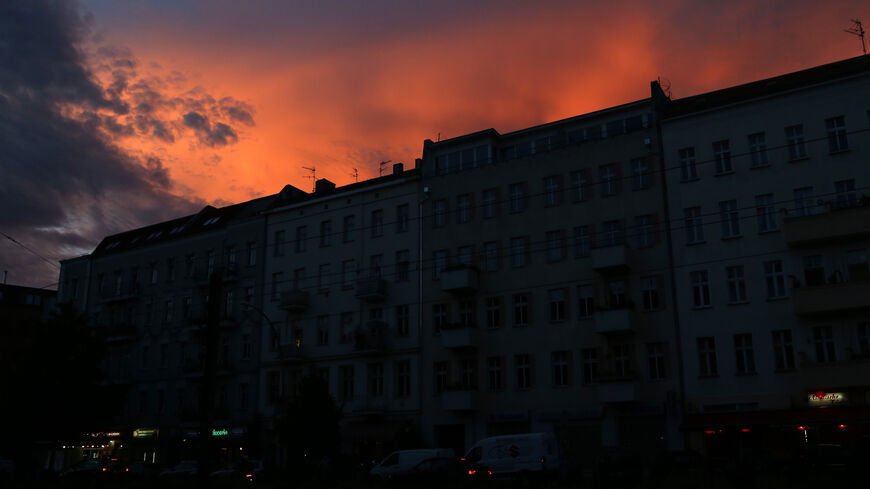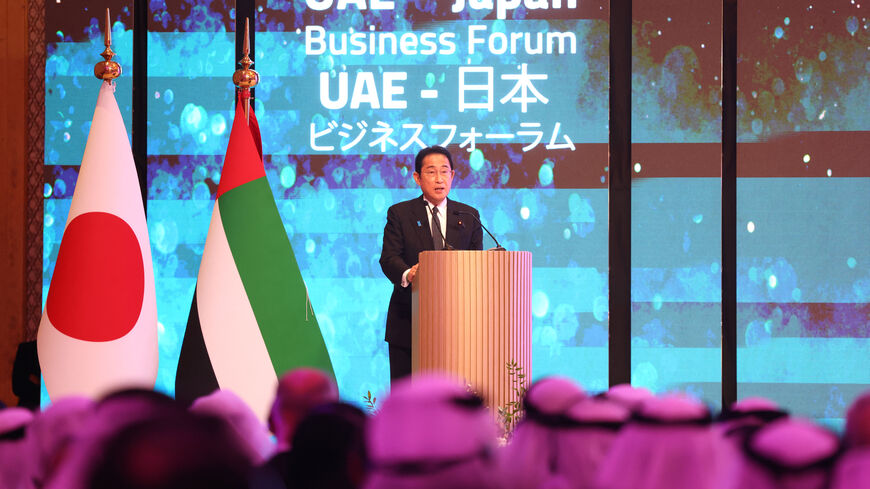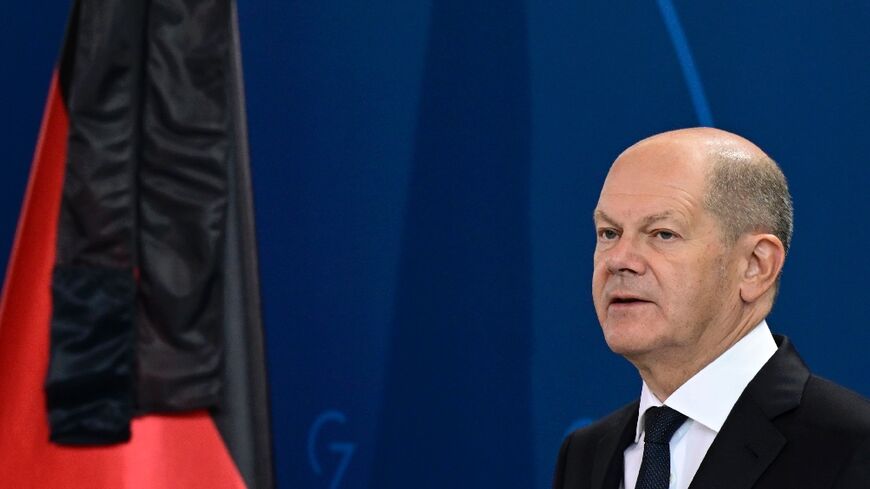UAE agrees to supply Germany with gas, diesel as Scholz tours Gulf
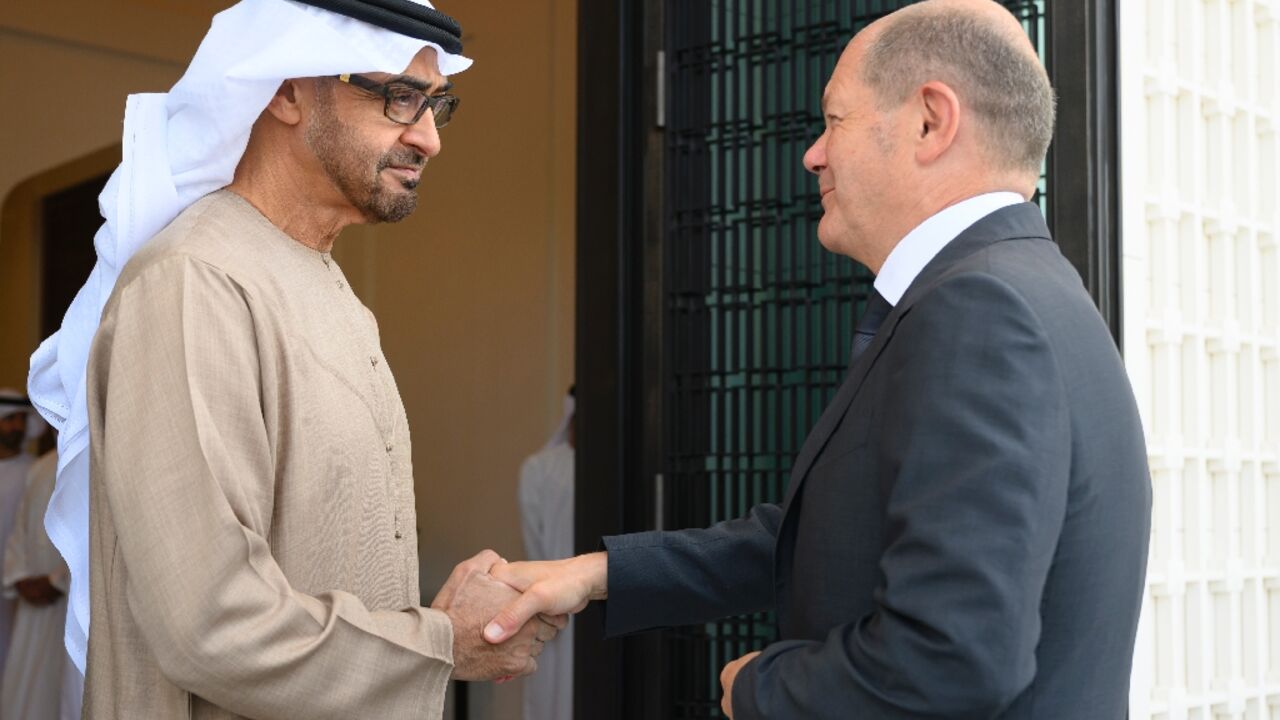
The United Arab Emirates agreed Sunday to supply natural gas and diesel to Germany as part of an "energy security" deal to replace Russian supplies.
Emirati industry minister Sultan Ahmed Al Jaber called it a "landmark new agreement" that "reinforces the rapidly growing energy partnership between the UAE and Germany", at a signing attended by German Chancellor Olaf Scholz, the UAE's state news agency WAM reported.
Scholz signed the deal while on a Gulf tour that took him to the UAE, Saudi Arabia and Qatar hunting for new energy sources.
He met with Emirati President Sheikh Mohamed bin Zayed Al-Nahyan, who said on Twitter they had discussed "cooperation in areas including energy security, emissions reduction and climate action".
The German leader said he "welcomed" the "energy security" agreement, WAM said.
UAE state oil company ADNOC completed its first direct diesel delivery to Germany this month, and will "supply up to 250,000 tons of diesel per month in 2023", it reported.
The first delivery of 137,000 cubic metres of liquefied natural gas will be made in December at Germany's new floating LNG import terminal at Brunsbuettel, near Hamburg, the RWE energy firm said in a statement.
ADNOC will make more LNG deliveries to Germany in 2023, WAM said.
Scholz's two-day Gulf tour aimed to seal new energy deals to replace Russian supplies and mitigate the energy crisis resulting from Moscow's invasion of Ukraine.
On Saturday, he met Saudi Crown Prince Mohammed bin Salman in Jeddah.
On Sunday afternoon, following his trip to the UAE, he held talks in Doha with Qatari Emir Sheikh Tamim bin Hamad Al-Thani on energy and investment, according to an official statement.
No deals were announced in Qatar however. The two countries are locked in tough talks on the length of contracts for LNG supplies, according to German media, and Scholz said he wanted to see progress.
Scholz said Qatar's controversial rights record was improving but did not commit to attending the World Cup in the Gulf state that starts in November.
- Energy transition -
Scholz's stop in the UAE included a tour of an environmental project at a mangrove park with Emirati climate change minister Mariam Almheiri.
Almheiri said discussions would cover "climate action and economic growth" as well as energy supplies.
"The UAE believes all three pillars must go hand in hand. We cannot look at one or two of these pillars separately," she said.
The UAE, Saudi Arabia and Qatar have been critics of what they call unrealistic energy transition models they say have contributed to shortages that have hit Europe in the past two years.
Scholz told reporters in Abu Dhabi that his country had "made progress on a whole series of projects here in terms of the production and purchase of diesel and gas", while adding it was determined to avoid energy dependence on Russia.
"The fact that we are dependent on one supplier and also dependent on its decisions will certainly not happen to us again," he said.
"With the investments that we are now making in Germany, and that will become reality bit by bit next year, we will indeed have an infrastructure for gas imports for Germany, such that we are no longer directly dependent on the specific supplier at the other end of the pipeline, as we are with a pipeline connection."
Scholz ended the tour in Qatar one day after France's TotalEnergies signed a new $1.5 billion deal to help expand Doha's natural gas production.
The German chancellor said such projects were "important".
"We have to ensure that the production of liquefied gas in the world is advanced to such an extent that the high demand that exists can be met -- without having to fall back on the production capacities in Russia that have been used so far," he said.


